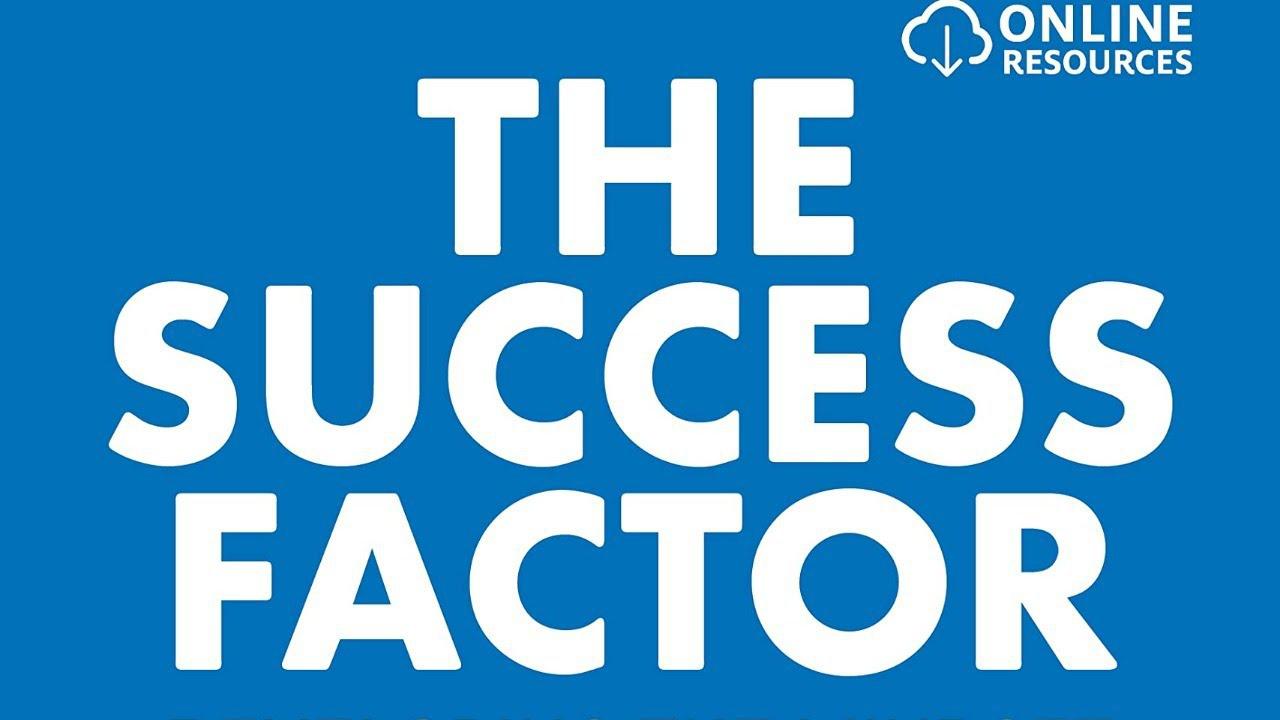
Ruth Gotian / Kogan “The Success Factor”
“I’ve been obsessed with success for a really long time.”
Those are the words of Dr. Ruth Gotian, a social scientist who has spent the better part of her career researching how the most successful people got to be so effective and high performing. Gotian also serves as the chief learning officer and assistant professor of education in anesthesiology at Weill Cornell Medicine in New York City.
Her new book, The Success Factor: Developing the Mindset and Skillset for Peak Performance, lays out four key factors that separate the over-achievers among us from the also-rans, including:
- intrinsic motivation;
- perseverance;
- strong foundation; and
- constantly learning through informal means.
“Everyone has the potential to be successful,” she said. “I completed my doctoral dissertation on performance, and I quickly realized that a Nobel prize-winning scientist is just like an Olympic champion figure skater. That’s when I learned that the four elements are learned skills.”
By interviewing individuals including the likes of NIH/NIAID Institute Director Dr. Tony Fauci, eight-time NBA Champion and head coach of the Golden State Warriors Steve Kerr, Nobel prize winner Dr. Mike Brown, former NASA chief astronaut Dr. Peggy Whitson, as well as the founder and former CEO of Build-A-Bear Workshop Maxine Clark, Dr. Gotian discovered that the four factors outlined above are the clear arbiters—indeed a pattern—of high-performance success versus mediocrity.
One of Gotian’s discoveries was to do with control. Highly successful people (like the rest of us) must deal with problems and challenges daily. The difference with high performers, however, comes down to control. They control what they can control, yet they do not get bogged down on the variables outside their control. Knowing that they only have so much control allows them to persevere whilst simultaneously exhibiting their strong foundation to complete or exceed the goal.
MORE FOR YOU
The high achievers wind up working harder and smarter, not longer and with additional stress.
Gotian explains that these high performers have previously gone to great lengths to hone their skills by constantly practicing their trade or craft on the concept of a strong foundation. Rather than “large wins,” the high achiever looks to build upon the smaller wins of past gains whilst adding new skills to their repertoire. Their ritualistic view of constantly developing their skillset (new and old) allows them to build new muscles and a stronger connective tissue across past learned skills.
Gotian also discovered that high achievers have peak performance and peak cognitive hours. They know precisely when their bodies and brains will be able to deliver the highest level of effort rather than trying to be something they’re not during a different part of the day. That’s an important lesson as you think about when you can deliver your best self at work. When to schedule meetings, what type of meetings, when to do highly cognitive and thinking work versus more mundane effort like answering emails and texts.
Reinforcement of learning was another significant discovery in Gotian’s research. For example, Ryan Millar, a three-time Olympian and a gold medal volleyball player, informed Gotian that the most crucial aspect in volleyball is not how high you can jump; rather, it’s ball control. To practice ball control, the exercise he constantly used to reinforce his skill level was called “pepper.”
“Malar used to play pepper when he was seven years old in his backyard, and it hasn’t changed,” Gotian stated, making note that if you genuinely want to be high achieving, there is a pre-requisite to reinforce what you have previously learned.
“Most people don’t have three to eight hours a day to read,” said Gotian, “but we must be open to new knowledge” if we want to be a high achiever. Gotian is paying homage to the fourth tenet of her four-part high-performing playbook: constantly learning through informal means.
High performers are constantly looking for gaps in understanding and making connections, particularly where others don’t see it. High achievers also “take information and knowledge from one industry and utilize it in another,” she said. “High achievers are constantly opening up their minds to new knowledge.”
The Success Factor is the result of Gotian’s years-long research into high performing achievers—notwithstanding a component to her doctoral studies—and if ever there was a crystalized playbook to help you sort out what exactly makes these sorts of people rise above, this book is it.
Watch a detailed interview with Dr. Ruth Gotian below as she discusses The Success Factor.
_______
Check out my book, “Lead. Care. Win. How to Become a Leader Who Matters.” Thinkers50 #1 rated thinker, Amy. C. Edmondson of Harvard Business School, calls it “an invaluable roadmap.”




